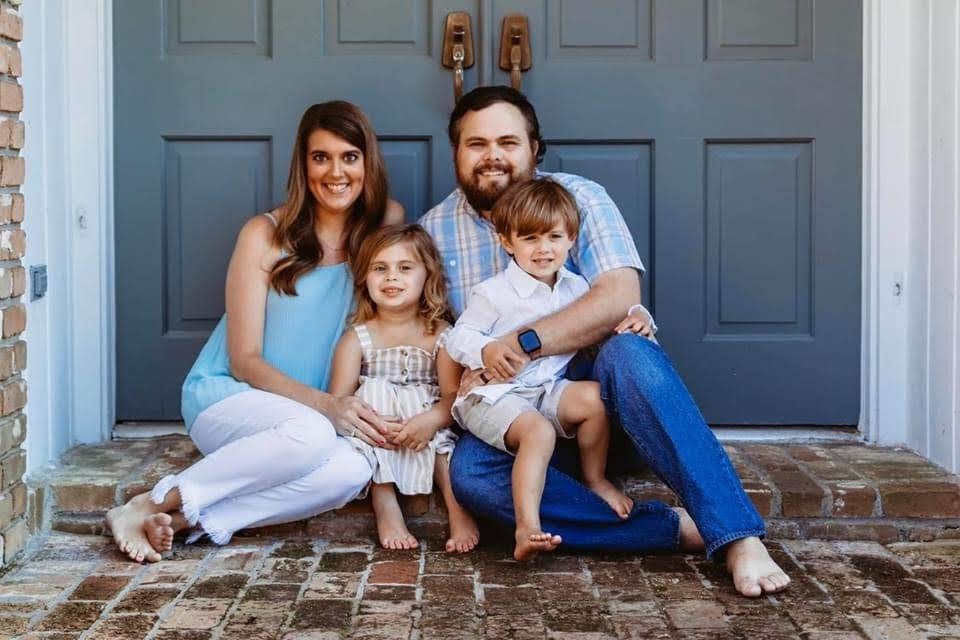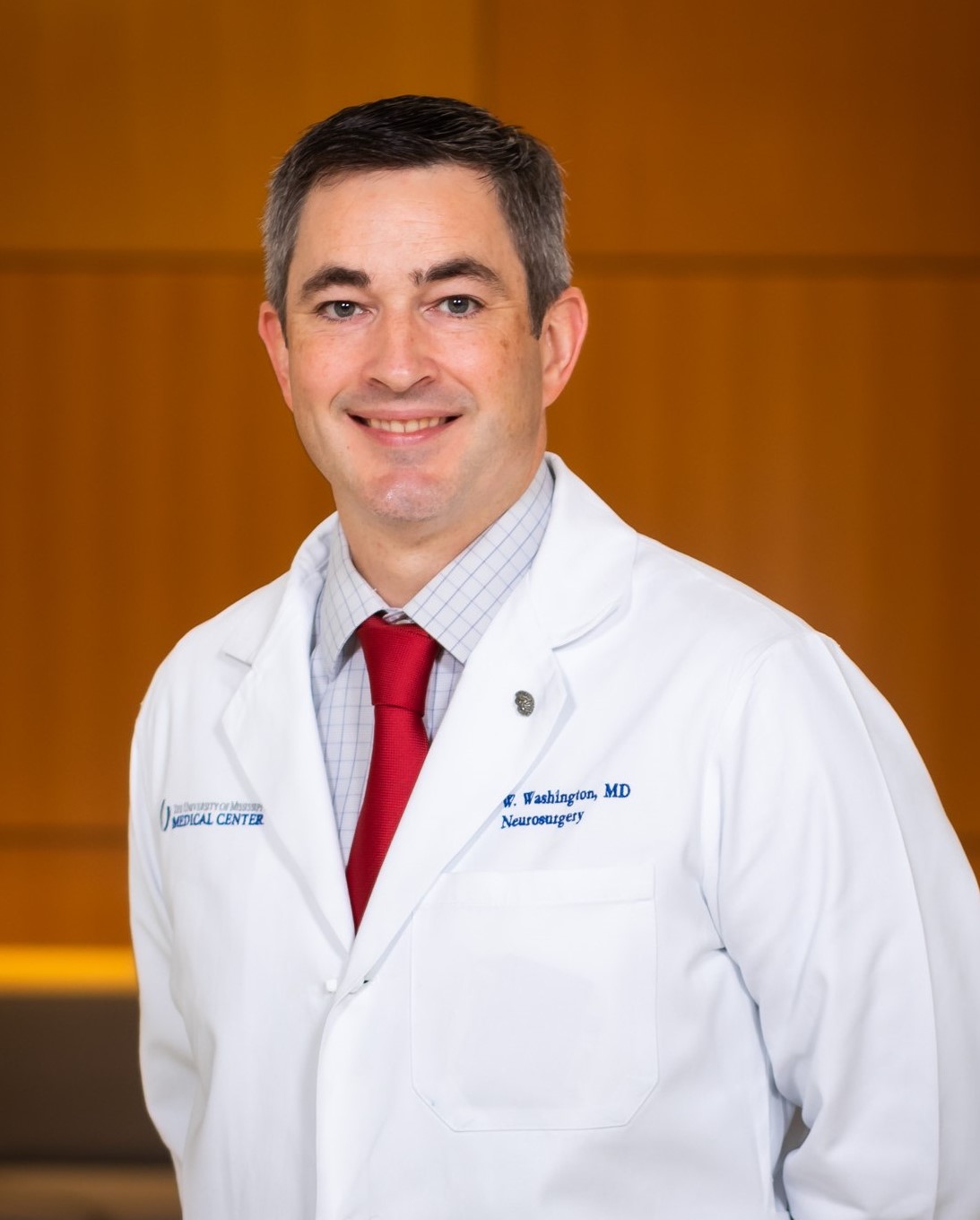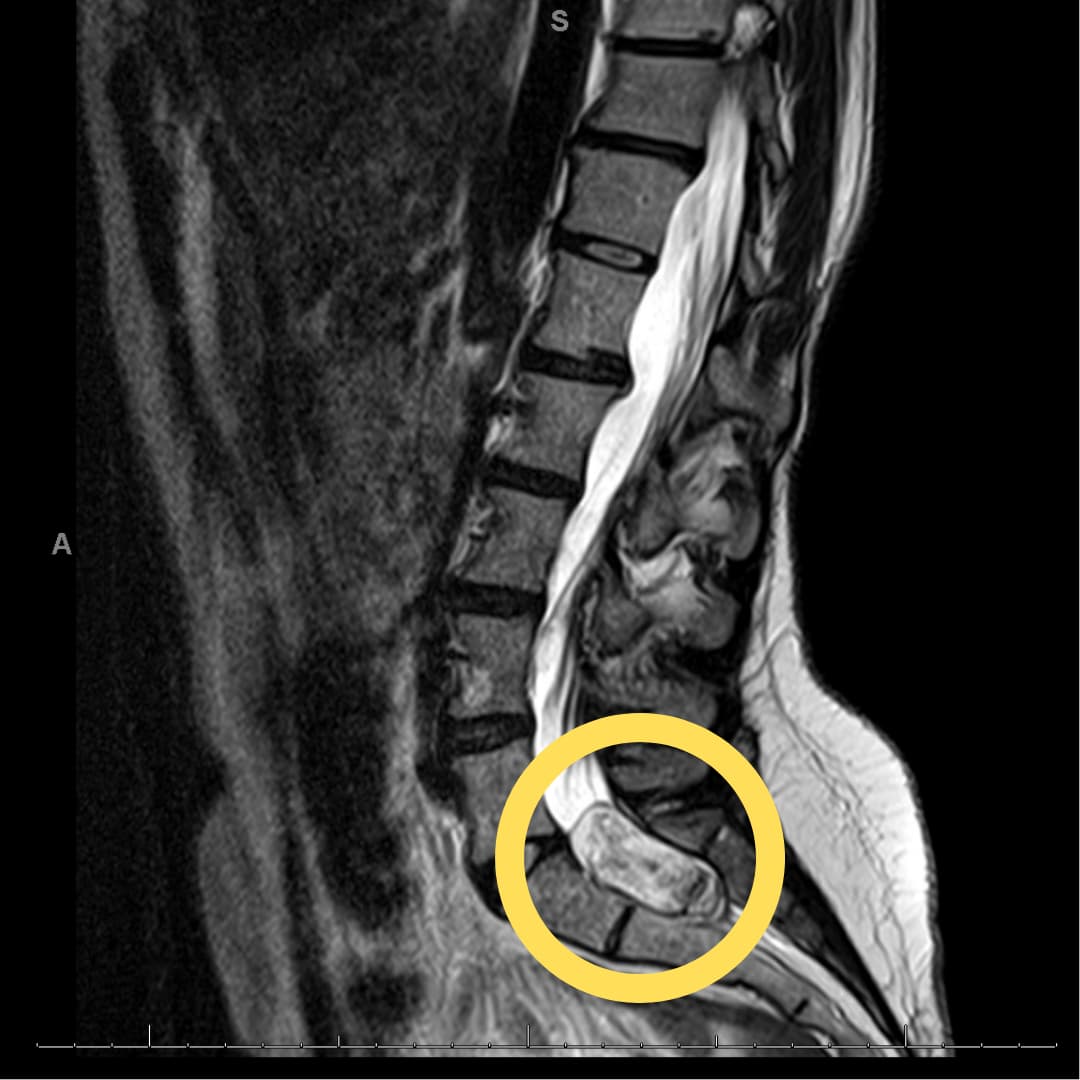Patient Story: Morgan Richardson - Spine Tumor

Morgan Richardson of Greenwood MS, a nurse with two children under the age of five, thought her back and leg pain came from long workdays and the rigors of parenthood. After months of discomfort and treatment for sciatica, she went for an MRI at Greenwood Leflore Hospital. Imaging revealed a complicated mass on her spine.
“As my neurosurgery morning clinic was nearing completion, I was contacted by the MRI technician that she had just completed a lumbar study on her patient, Morgan Richardson, RN. There were unexpected findings of an enhancing tumor in the spinal canal. Morgan came straight up to my clinic where she was examined and arrangements were made for a referral to Dr. Washington at UMMC,” said Dr. James Miller, Richardson’s neurosurgeon at Greenwood Leflore Hospital.
Located in the sacral region of her spine, this tumor required special attention from an experienced expert. With neurosurgeons specially trained in complex spinal surgery, the Department of Neurosurgery at UMMC was exactly where Richardson needed to be.

“Morgan had a rare tumor that was intricately wrapped around her spine,” said Dr. Chad Washington, chair of UMMC Neurosurgery. “It was a challenge we were willing to take and it needed to be addressed quickly.”
“It all moved so fast, but I trusted Dr. Miller’s choice in referral,” said Richardson. Within a week of her MRI, Richardson and her family made the trip from Greenwood to Jackson to meet Dr. Washington and make a plan for surgery.
“He talked to us very clearly. The tumor might do more damage if it wasn’t removed quickly. With two small kids, I was terrified of everything that was happening to me. Dr. Washington described the surgery in great detail, explaining all the potential risks and benefits to us,” Richardson remembered. “He gave me comfort going into surgery that I was in the right place.”
The eight-hour surgery went smoothly. Even through the complexity of its placement, and the attachment to spinal nerves, Dr. Washington and his team were able to remove the entire tumor while maintaining neurological function. Richardson stayed at UMMC for four days while recovering from surgery.
“Being a nurse myself, I had high expectations for the level of care I would receive. The service at UMMC was wonderful, better than I expected. It was a tough and scary time in my life, but I felt very well taken care of,” said Richardson. “Given the circumstances, I could not have had a better experience.”

After surgery, Richardson’s pathology report diagnosed her tumor as a WHO (World Health Organization) Grade 1 Myxopapillary Ependymoma. Slow growing, this type of glioma arises from supportive tissue in the brain and spinal cord. Though every tumor prognosis varies, if left untreated this type of tumor will progress and the patient will likely develop difficult symptoms like numbness in the legs and loss of bladder and bowel function. Progression could even become life-threatening.
Much like Richardson’s situation, symptoms for spinal tumors can easily be mistaken for typical discomfort of everyday life. Almost everyone experiences back pain at some point, but it could be a sign of something more complicated if coupled with other symptoms like difficulty walking, numbness, or loss of sensation. After listening to her symptoms and receiving the specialized care she needed, Richardson is finally able to take care of her kids and her patients without constant pain.


